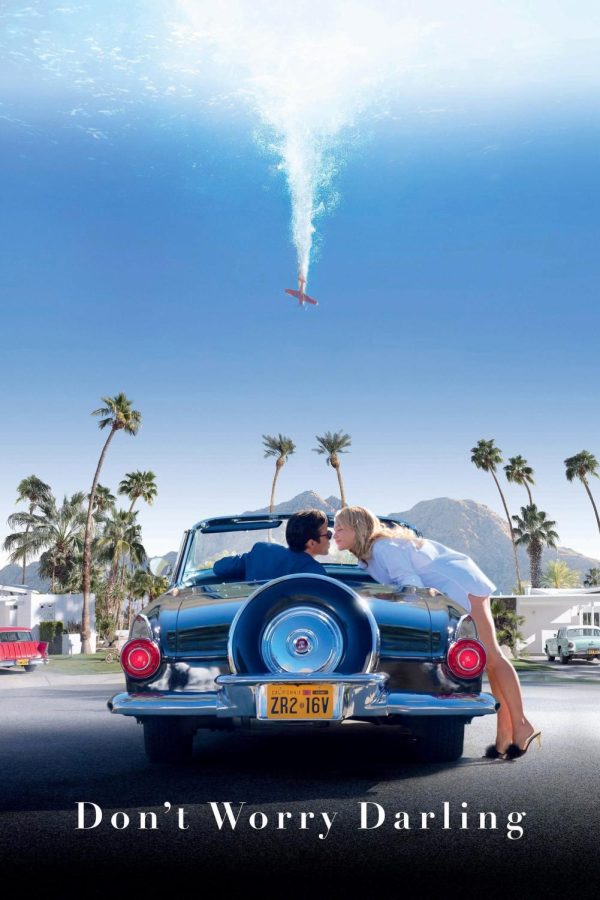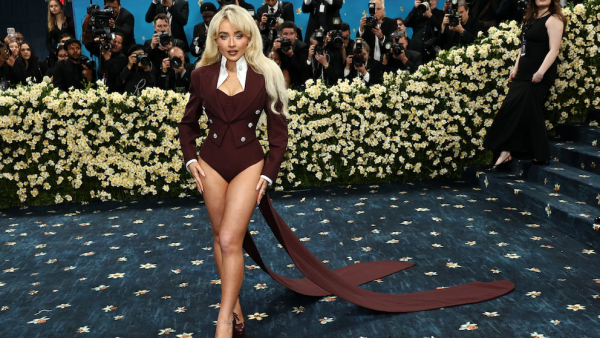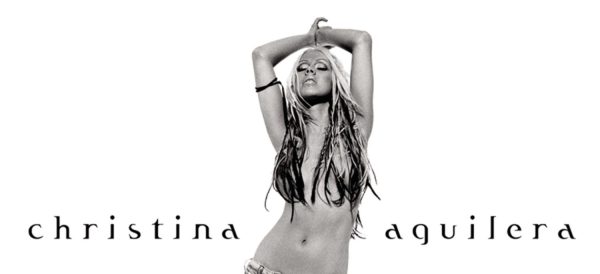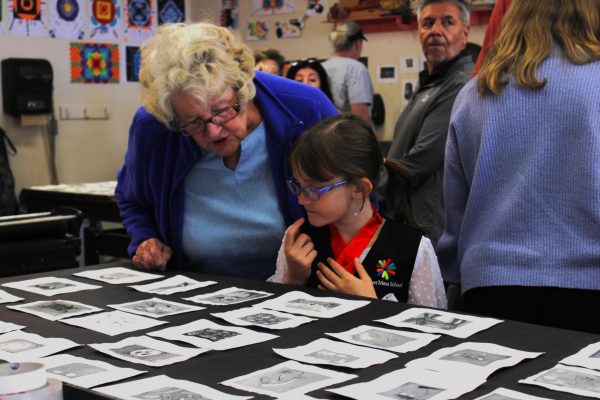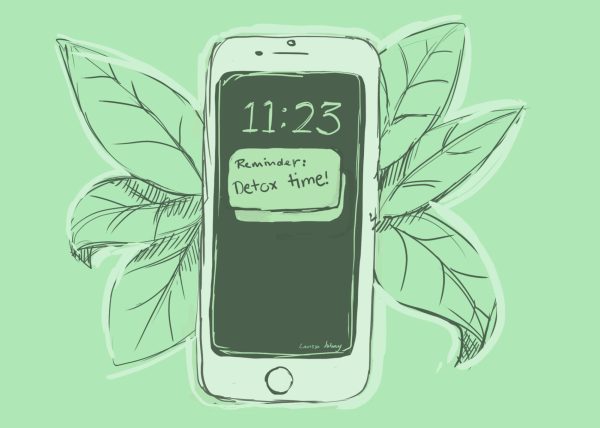Don’t Worry Darling Review
A thriller, a social commentary, and a conversation starter
Don’t Worry Darling, directed by Olivia Wilde and starring A-listers like Florence Pugh, Harry Styles, and Chris Pine is a psychological thriller set in the experimental town known as Victory. The movie is equal parts thriller and social commentary as it follows the themes of, control, and gender roles. In the town of Victory, everything is perfect. The men leave every morning to work on the top-secret ‘Victory Project,’ and the women stay home and enjoy a carefree, jobless life. While this town seems to exist beyond the confines of time, it reminds viewers of classic 1950s suburbia. The story follows the main character Alice Chambers (Florence Pugh) and her husband, Jack Chambers (Harry Styles), as they navigate their lives in this “paradise.”
The main point behind the film seemed to be: people should have the freedom to choose what they do with their lives and bodies. This message was fascinating, but I wasn’t the only one who had mixed feelings about the execution. Don’t Worry Darling was given a 38% rating on Rotten Tomatoes while the fans gave the movie a 75% rating. With this, it’s hard to know who to believe.
The movie starts off like any thriller does: a flurry of world-building, character development, and unease. Right from the start, viewers are cued into the fact that Victory isn’t at all what it seems. It feels For some, these can feel a bit rushed and overwhelming, which packed into such a short time makes the viewer feel disoriented after the first hour of watching. With that being said, I urge you to hold on! The second half brings us the much-anticipated, thriller twist and answers many lingering questions.
The climax of the movie hits about three-quarters of the way through, leaving you with horrified goosebumps even time can’t smooth away. The movie ends amidst the action finale and leaves the audience with lots of questions to ponder and an equal amount of pondering. The questions were a result of a couple of open-ended plot lines that were never properly addressed before the credits began rolling. However, I continued to consider that my pondering was caused by the unique choices each of the characters made for themselves after the end of the movie.
While the majority of my initial pondering has faded, there are two main things that have stuck with me since watching Don’t Worry Darling. One was the heartwrenching performance of Florence Pugh. For anyone who has seen Pugh act, it won’t come as a surprise when I say, she gave it her all and took the film to the next level. Two, this movie was more than just a thriller, it was a powerful social commentary. It explored the issues of gender norms and bodily autonomy while simultaneously addressing historically taboo subjects like female hysteria and female rage. Topics like these would have never been brought up if it weren’t for the thoughtful guidance under director Olivia Wilde.
This movie is proof that female directors are a must in the movie industry. As a woman, being able to see one’s frustrations with real-world topics mirrored at the theaters is not only refreshing, but it also helps me feel seen. I’ll give Don’t Worry Darling three titles: a thriller, a social commentary, and a conversation starter. For far too long, women have been cast aside as the supporting roles or damsels in distress. It’s time for a change, and that change is already here. This movie is only the beginning of a long line of films addressing topics that were once “too touchy” to discuss.


